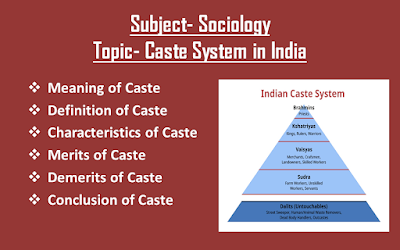Occupation- Meaning, Advantages and Disadvantages
# Occupation
Occupation is an activity undertaken by the person to earn his livelihood. It can be business profession or employment that a person undertakes to make money. When a professional is paid for his skill or talent, it is known as occupation. In other words, an activity performed by a person normally for monetary compensation is known as the Occupation.
Occupation refers to the kind of economic activity endeavored by a person regularly for earning money. When someone engages or occupies himself most of the time in any economic activity that activity is known as their occupation.
An occupation does not necessarily require specialized schooling in a particular stream. Physical or mental both kinds of job are included in an occupation.
For example; drivers, shopkeepers, a government servant, clerks, accountants, etc.
# Advantages of occupation
1. Occupations provide individuals with a means of earning a living and meeting their financial needs.
2.They offer a variety of entry-level opportunities, allowing individuals to start working and gaining practical experience.
3. Occupations can be flexible, providing options for part-time, freelance, or self-employment.
4.They can offer opportunities for skill development and on-the-job training, allowing individuals to enhance their capabilities.
5. Occupations provide individuals with a sense of purpose and contribution to society.
6. They can offer networking opportunities and connections within specific industries or sectors.
7. Occupations often provide immediate employment opportunities without extensive educational requirements.
8. They can allow individuals to explore different industries or roles to find their areas of interest and passion.
9. Occupations provide individuals with opportunities for personal growth, learning and professional development.
10. They can offer a stepping stone for career advancement or transitioning into more specialized professions.
# Disadvantages of Occupation
1. Occupations may not always provide job security or long-term stability, especially in industries prone to economic fluctuations or technological disruptions.
2. Some occupations may have limited growth prospects or advancement opportunities.
3. Occupations can be physically demanding or involve repetitive tasks, leading to potential strain or burnout.
4. Certain occupations may have lower income potential or limited financial rewards compared to more specialized professions.
5. Some occupations may not provide a sense of fulfillment or align with individuals' personal interests or values.
6. Occupations may not always offer extensive benefits or perks beyond basic compensation.
7. They can involve irregular working hours, shift work, or weekend and holiday obligations.
8. Occupations may not have defined career paths or clear routes for progression.
9. They can be susceptible to automation or outsourcing, potentially leading to job displacement or reduced demand.
10. Some occupations may lack societal recognition or status compared to professions that require specialized expertise.
Watch video on YouTube





